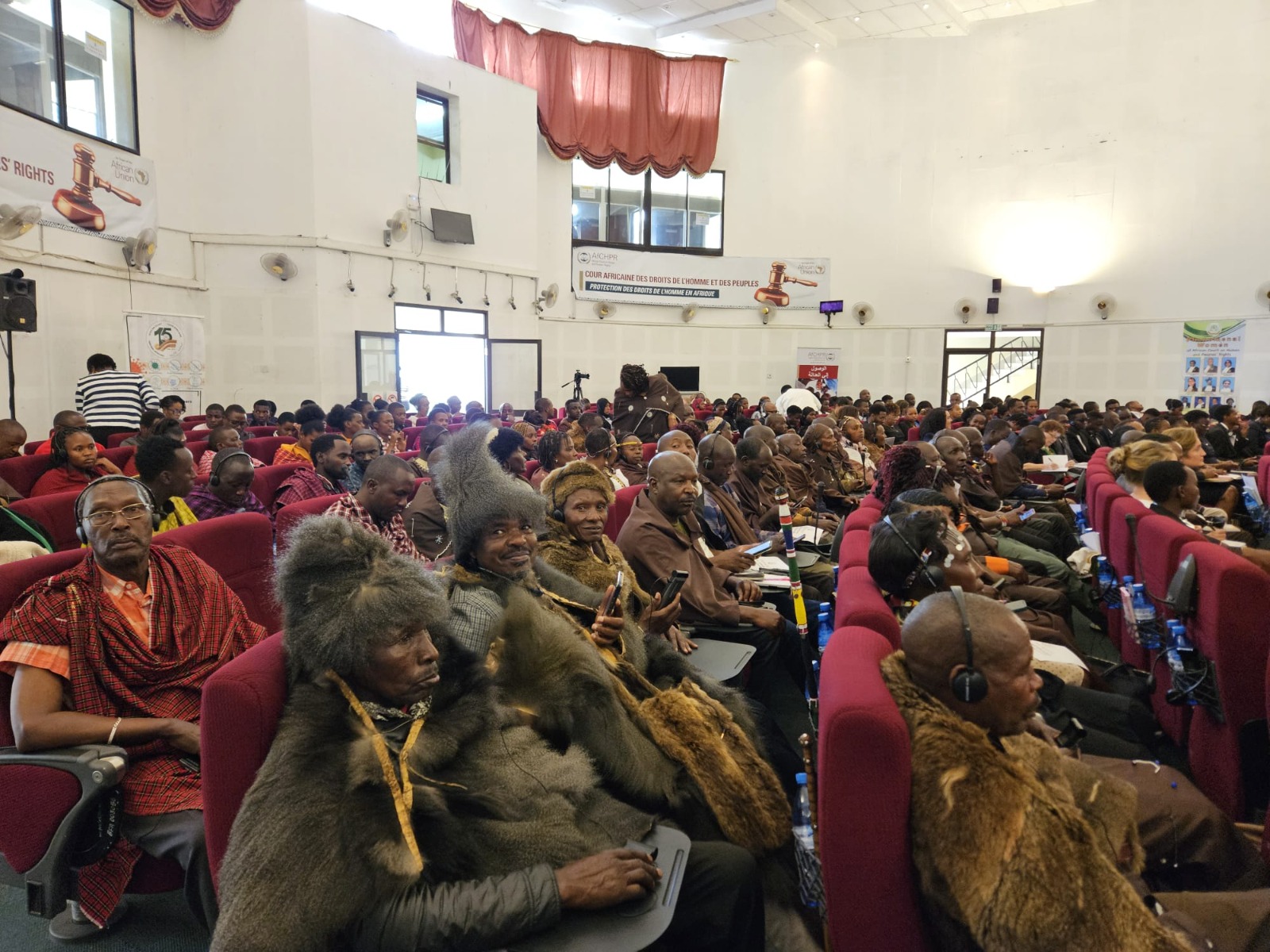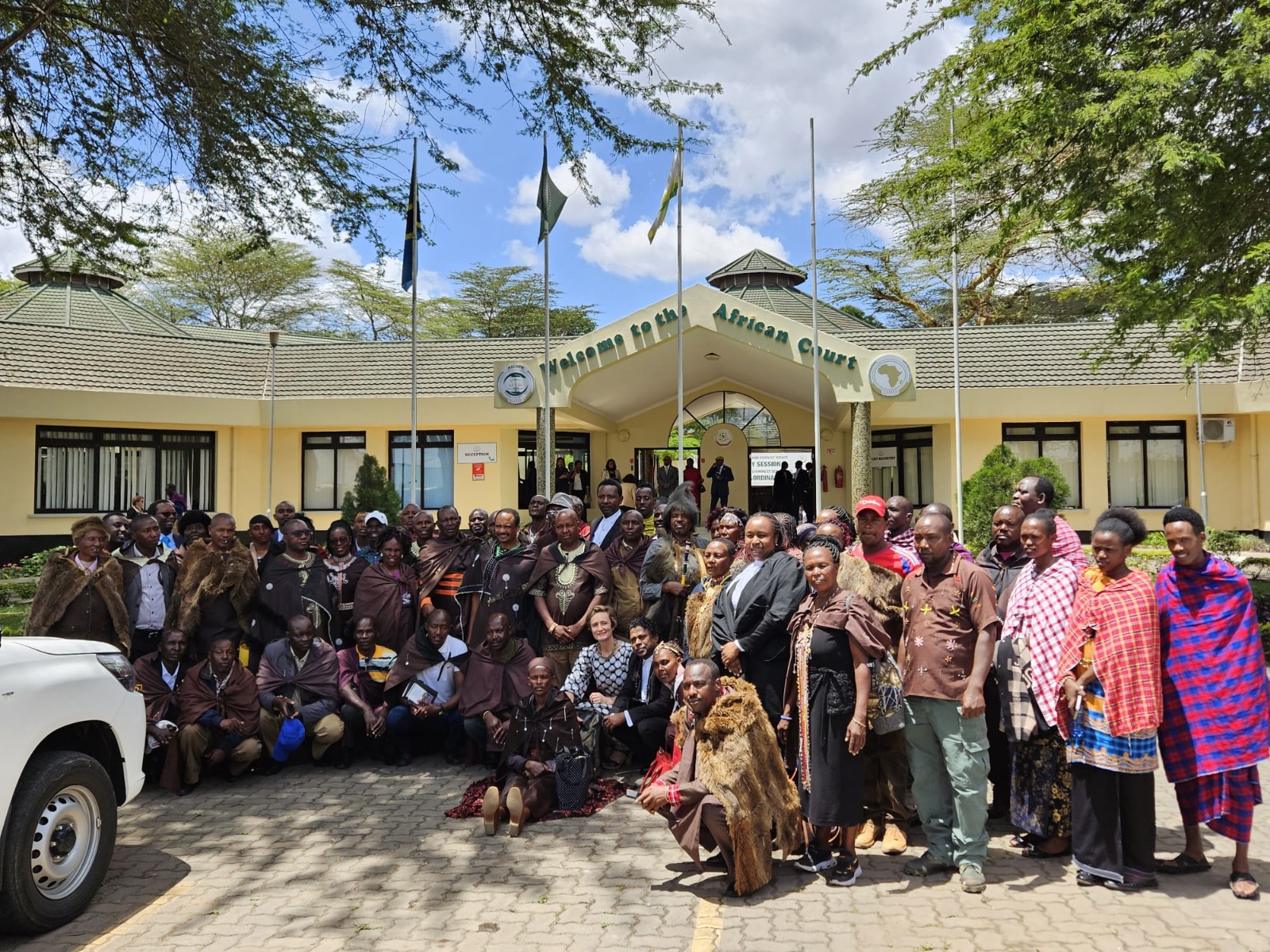

The African Court on Human and Peoples Rights sitting In Arusha on Tuesday adjourned the hearings on the implementation of the Ogiek rulings of 2017 and 2022 for three months at the request of the Kenyan government.
State counsel Charles Mutinda requested more time to demonstrate steps towards compliance with the judgments, arguing that changes in government had affected the implementation as the reports need ownership at the Cabinet level.
“The Kenyan government is law-abiding, and the ruling has been disseminated to the concerned agencies. We have also established task forces that have made reports on the implementation of the ruling. Some provisions of the rulings go against the Constitution of Kenya and are not implementable,” Mutinda told the court.
“The hearing notice came at a time we had
changes in the Cabinet. We need time to forward this decision to the Cabinet, the main organ in every country. In terms of alleged ongoing
evictions, we have designated this judgment to the various government agencies
and we are not aware of any evictions,” he added.
Mutinda requested the court for three months to present the report to the Cabinet and for the development of an implementation roadmap.
In the landmark ruling on May 26, 2017, the court ruled that the Kenyan government had violated Ogiek’s right to life, property, natural resources, development, religion, and culture.
The court found that the government had evicted the community from their ancestral land in the Mau Forest and that it must take steps to remedy the violations.
In the reparations ruling on June 23, 2022, the court awarded the Ogiek Sh57.85 million as compensation for the material prejudice suffered and Sh100 million for the moral prejudice suffered. The court, among other directions, also ordered that the government grant the community a collective title and put measures to prevent further violations of their rights.
Since 2022, there have been three changes at the Ministry of Environment. Following the September 2022 election, Keriako Tobiko ceased being the Cabinet Secretary, and President William Ruto appointed Soipan Tuya as the CS.
After President Ruto dismissed the Cabinet following Gen Z protests, CS Tuya was swapped with then Dfence counterpart Aden Duale.
It was during the tenure of Tuya that the Ogiek were evicted from the Mau Complex in November 2023 on environment conservation grounds. This was despite the African Court stopping further evictions.
Arguing against the request to adjourn,
counsel Tom Nyadunga appearing for the African Commission on behalf of the
community said the state counsels had not filed their submissions or request
for an adjournment earlier.
“Had they done that, they would have saved a lot of cost on the applicants, members of the public,” he said, adding that they are not sure that three months would be enough as it has taken seven years on the 2017 ruling on the merits and two years on the reparations judgment to have an implementation report.
Maintaining that indeed evictions had happened, Nyadunga urged the court to invoke Rule 90 of the Court, which allows it to adopt any procedure or decision that is necessary to meet the ends of justice.
Reacting to the decision, Ogiek Peoples' Development Program Executive Director Daniel Kobei said it was disappointing, and that he felt the government was attempting to frustrate them.
“Today was very annoying that the Kenyan government came with bad news that they want an adjournment yet they had all the time and should have adjourned. Now we have come with over 55 community members here hoping they would get a reprieve on the evictions and other determinations that have done. We are not happy, we feel disappointed because we thought today they would stop any further evictions but unfortunately they said there are no evictions yet my community are out especially in Sasumwani and nothing has be done to them,” Kobei said, adding that the three months maybe not realistic.
Kobei further said even with the change of ministers, there is no justification for a lack of continuity in government.

He, however, said there were some positives to draw, as the government had sent three lawyers, indicating the seriousness of the matter.
African Commission Commissioner Solomon Ayele Dersso urged the community to remain resilient, saying they will do everything possible as a commission to ensure justice is served.
“I believe the challenges you are facing will be solved and through the application presented to the court, we will be able to demonstrate these challenges for it to make the right findings that will be favourable for the implementation of the decision,” Dersso said.
Liz Alden Wily, an independent land tenure and governance specialist who was an expert witness in the case, said it was a setback as there will be another delay of three months.
She noted that while the government lawyers said there is a plan of action to be presented to the Cabinet, according to the African Court orders, the community should have been consulted.
She also called out the state counsel for lying to the court that there were no evictions, while there was evidence they have happened.
Alden said the African Court is seized of
the matter and has not delayed on it but has always been on the part of the
Kenyan government.
“Kenya is behind in Africa in terms of helping communities set up community-owned and managed forest reserves, in restitution. South Africa has already restituted over 60 national forest reserves and parks to claimant communities. The Kenyan Constitution provides for restitution.
“The grounds were dirty. To wait until 55 Ogiek travel to Arusha, great finances being spent to bring all the 11 judges of the court, on bringing the African Commission and the cost everyone supporting the Ogiek has incurred was unprofessional,” she said.
The failure to implement the rulings, she said, is becoming a major concern among the African Union officials.
Following the ruling in 2022, Commissioner Dersso said the judgment afforded the policy organs of the African Union, in particular the Assembly of Heads of State and Government and the Executive Council, the opportunity to uphold their role in the implementation of the Court judgements.
“It is the view of the Commission that in accompanying Kenya for the implementation of the Court Judgements, the Policy Organs play their role concretely for the achievement of the Africa we want under Agenda 2063,” he said.
Kenya thus falls the risk of being referred to the AU for non-compliance, a move that would taint the country’s image as far as democracy, rule of law and protection of human rights are concerned.











